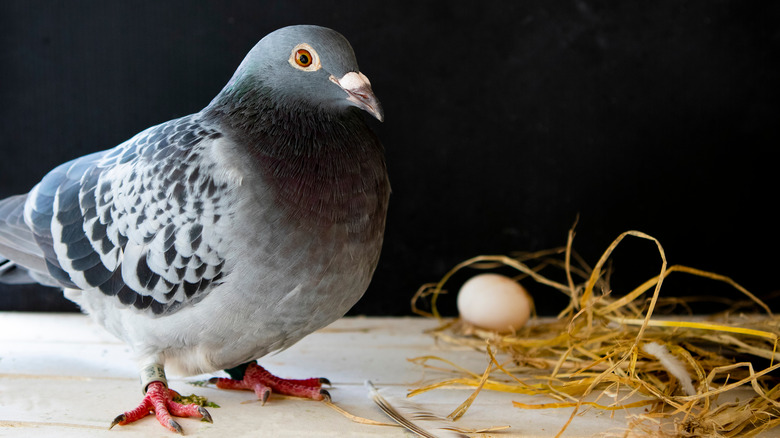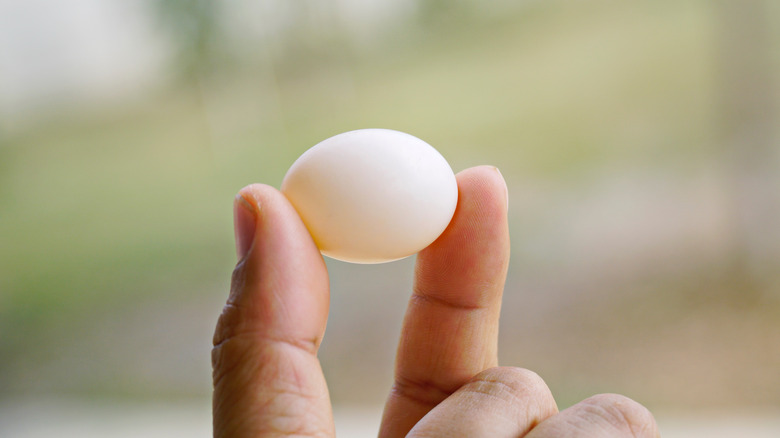Pigeon Eggs Are A Delicacy. Here's Why You Haven't Had One
Chicken eggs are such a staple in most people's diets that it's easy to overlook the fact that other birds also lay eggs that are both edible and delicious. You may have encountered a quail or duck egg at a high-end restaurant and wondered what other unusual eggs might be out there.
Well, one you might not have considered is the pigeon egg. That's right — the often-maligned "rats of the sky" actually produce eggs that are considered a delicacy in some parts of the world. Measuring in at about three centimeters — which is less than half the size of a chicken egg — pigeon eggs are hard to find and even more challenging to get from nest to plate.
Their rarity stems from two main issues: First, pigeon eggs are incredibly delicate and difficult to transport. Second, pigeons are just too smart to let you get away with taking their eggs easily.
Why are pigeon eggs so rare?
Pigeons are highly intelligent creatures. In fact, certain breeds — often referred to as carrier pigeons — were smart enough to transport mail, serving as valuable messengers during World War I and even before that. Today, they're still clever enough to sneak up on you and feast on your sandwich crumbs. These savvy birds keep close tabs on the number of eggs they lay and will immediately notice if one goes missing. Since pigeons lay fewer eggs compared to chickens, this poses a challenge for pigeon farmers, who sometimes resort to tricking the birds by replacing real eggs with fake ones upon harvesting.
But the difficulties don't end there. Pigeon eggs have thin shells that can crack at the slightest touch. Simply picking one up could break the shell. This fragility also complicates cooking; the eggs are often steamed to prevent them from bursting in a pot of boiling water.
How to eat pigeon eggs
Pigeon eggs are most commonly consumed in China, where they are typically served whole due to their small size — it would be difficult to make a filling scrambled egg dish out of pigeon eggs — and rarity. They are often steamed or boiled first to maintain their shape, then fried or even braised to create a crispy outer layer, almost like a meat-free Scotch egg. Occasionally, they may also appear in French fine dining restaurants as a specialty item.
Pigeon eggs are difficult to purchase, so your best bet for trying them is to find a restaurant that serves them and inquire ahead to see if you can reserve them. Any place that carries these rare eggs is likely to sell out quickly. But if you can find them, the effort is worth it. Pigeon eggs have a flavor similar to chicken eggs, but with clear, silky whites when cooked.



